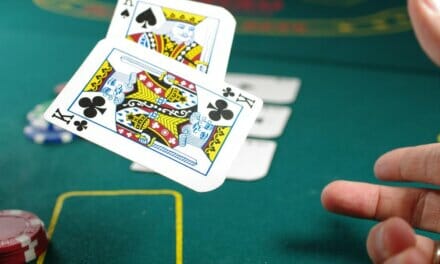
The Science of Slots: Understanding the Algorithms Behind Online Slot Gaming

For more than a century, slot machines have been a well-liked source of amusement. The modern online slots, with their sophisticated algorithms, have gone a long way from their humble beginnings as simple mechanical machines with only a few symbols.
But how do they work? What is the science behind slot machines?
Random Number Generators (RNG)
Random Number Generators (RNG) are at the heart of all slots to play machines. They are computer programs that generate random numbers that determine the outcome of each spin.
The numbers generated by the RNG determine which symbols will appear on the reels and whether or not the player will win. The RNG ensures that every spin is completely random and independent of the previous one, which means that the outcome of each spin is entirely up to chance.
The RNG works by using a complex mathematical algorithm that generates a sequence of numbers that are completely random. The algorithm is so complex that it is virtually impossible to predict the next number in the sequence, which means that the outcome of each spin is completely random and fair.
Paylines and Payouts
Paylines are the lines on which the matching symbols must land for the player to win. The number of paylines varies from game to game, and some games have as many as 243 paylines. The more paylines a game has, the more chances the player wins.
Payouts are the amount of money the player wins if they hit a winning combination. The payout depends on the value of the symbols on the payline and the player’s bet amount. The higher the value of the symbols and the higher the bet, the higher the payout.
Symbols and Reels
The reel symbols are what add intrigue and excitement to the game. Fruits, numbers, letters, animals, and well-known figures are examples of possible symbols. Each symbol has a different value. The player can earn more money when the symbol’s worth is higher.
The number of symbols on the reels varies from game to game, but most games have between 3 and 5 reels. The more reels a game has, the more chances the player has of hitting a winning combination.
The algorithms used in online slot machine games are made to guarantee that all spins are independent of one another and that the symbols on the reels are fully random. This implies that there is no way to forecast the results of any given spin and that the outcome of each spin is solely determined by chance.
Bonus Features
Many online slots offer additional features that can be unlocked by landing specific symbols or combinations. These bonus features are just a few examples of free spins, multipliers, and mini-games. These additional features’ underlying algorithms are built to guarantee that they are arbitrarily and fairly activated.
Free spins are a common bonus feature that allows the player to spin the reels without placing a bet. Multipliers are another bonus feature that can increase the player’s winnings by a certain amount. Mini-games are often interactive and can be anything from a simple pick-and-win game to a more complex one requiring skill and strategy.
Variance
Variance, also known as volatility, is another factor to consider when choosing which slot games to play. The frequency and size of the rewards are referred to as variation. High-variance games pay out less frequently but in larger sums, while games with low-variance pay out more frequently but in smaller amounts.
Higher payouts and greater excitement are possible with high-variance games, but the risk is also higher. Conversely, low-variance games provide a stream of payments that is more reliable and continuous but may not be as exciting.
RTP
RTP, or Return to Player, is a term used to describe the percentage of money returned to the player over time. For example, if a game has an RTP of 95%, it means that over time, the game will pay out 95% of the money that has been bet. The remaining 5% is the house edge, which is the casino’s profit.
RTP is an important factor when choosing which slot games to play. Games with a higher RTP offer better odds of winning, as they pay out a higher percentage of the money that has been bet. However, it’s important to remember that RTP is calculated over time and that individual results can vary.
Fairness and Regulation
The algorithms behind online slot gaming are designed to ensure that the games are fair and that every player has an equal chance of winning. Online casinos are regulated by independent third-party organizations that ensure that the games are fair and that the algorithms are working as they should.
These organizations test the algorithms and ensure that they generate completely random numbers and that the games are not rigged. They also test the payout percentages to ensure they are fair and the players get a fair chance to win.
The Future of Slot Gaming
As technology continues to evolve, so do slot machines. Online slot gaming has already seen significant advancements in recent years, with the introduction of 3D graphics, animations, and interactive bonus features. Virtual reality technology is also being developed for use in slot gaming, which could offer an even more immersive and realistic gaming experience.
In addition, slot machines are now more accessible than ever because of the growth of mobile gaming. Players may now access their favorite slots on the go, thanks to the availability of many online casinos’ games on mobile devices.
Conclusion
The science behind slot machines is complex and fascinating, with algorithms, RNGs, paylines, payouts, symbols, and reels all working together to create an exciting and entertaining gaming experience. Understanding these concepts can help players decide which games to play and how to maximize their chances of winning.
Ultimately, whether playing for fun or real money, it’s important to remember that the outcome of each spin is entirely up to chance and that there is no guaranteed way to win.


























